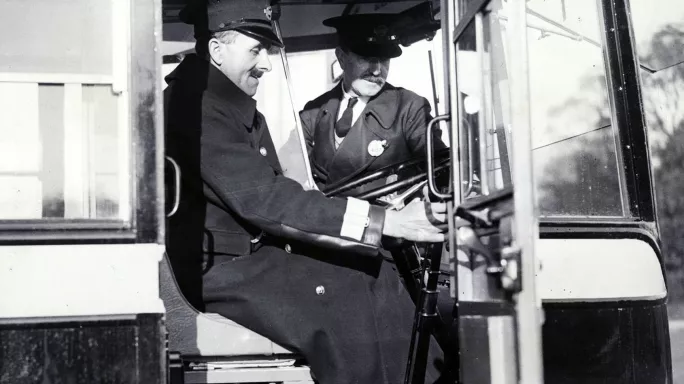
- Home
- 6 ways to be a better NQT mentor
6 ways to be a better NQT mentor

The number of teachers leaving the profession at the end of their newly qualified teacher year is worryingly high. An analysis of Department for Education figures carried out by the Association of Teachers and Lecturers (now part of the NEU teachers' union) in 2015 showed that almost four in 10 NQTs quit within a year.
And the problem can start even earlier – remember, not all of those who embark on a teacher-training course will finish it.
For someone entering the profession, the pressures can be just too intense. Workload, unrealistic expectations, the deep end of behaviour management – these are just some of the many straws that can break the camel’s back.
The truth is that however effective the training provider, a trainee’s experience is only as good as the mentor and school in which they find themselves. Put someone in the hands of a set-in-their-ways cynic who doesn’t want a student messing up their class, and chances are you won’t get a good outcome.
If you are a class teacher who suddenly finds yourself mentoring an NQT, it’s clearly worth going the extra mile to ensure you are offering the best possible support for someone just starting out.
But how do you do this? As a mentor, how can you best help your student to not only survive, but also thrive?
Quick read: 'Headteachers, don't let your NQTs burn out'
Quick listen: How to train a teacher
Want to know more? Academic Rachel Lofthouse on why mentoring is a 'Cinderella' activity in schools
1. Teach them
The good news is, as a teacher, you are perfectly equipped to support a teacher in training. If you can teach Billy to stop chewing his pencil and turn his 3s the right way around, then you’ve got this sewn up. You may be dealing with an adult instead of a child, but the basic principle is the same: model, encourage, and give feedback and advice for improvement.
It’s important to remember that you’re training an individual, not cloning yourself. When giving advice and feedback, look at the learning. It’s all too easy to set off down the “this is how I would do it” cul-de-sac, which can leave trainees scared to try out anything new.
2. Provide some ‘silent support’
Managing behaviour while simultaneously delivering a good lesson requires experience, but a lively Year 3 class on a wet Friday afternoon won’t be making any allowances for this. In the absence of a "perfect test" class, there are a few things you can do to provide some back-up. Just as a driving instructor can step on the dual controls, you can provide some secret support by reminding your class about behaviour before the student takes over – and then position yourself to quell any disturbance by administering some hard stares, as needed.

3. Build confidence
Standing up in front of a class when you’re not used to it is daunting. Doing it daily in between discussions about what you did wrong and grappling with enormous amounts of paperwork is likely to put a dent in the most confident trainee’s armour.
So when giving feedback, be kind. There will always be points for improvement, but over the years, I’ve had too many students tell me they’ve had feedback that sent them sobbing to the nearest cupboard. While you want to encourage excellence, remember that holding trainee lessons to a standard that most experienced teachers don’t always live up to isn’t helpful. Trainee teachers are, by definition, not the finished article; remind them of this and share stories of disaster from your own trainee days (make them up if you have to). Sometimes all that’s needed is a reminder that tomorrow is another day; send them home with instructions to leave the laptop in the bag.
4. Find time
Whether you’re finding your trainee to be a godsend, a millstone or something in between, one of the things you need to carve out for them is time – which, for the average classroom teacher, is one of the hardest resources to relinquish.
Make sure you build in time for weekly meetings and stick to them (but don’t let those meetings overrun). Be approachable, translate jargon and recap expectations as you go along. Trainees are bombarded with so much information when they enter a new school that it’s never going to go down in one gulp.
5. Model
When it comes to things such as behaviour management or questioning, sometimes the best teachers are the worst to learn from because they make it look so easy. When I was training, one of the first teachers I watched made me believe a class would fall silent simply by raising my head and fixing them with a neutral stare. They didn’t. That teacher had years of experience, came with a hefty reputation and an unquantifiable presence that commanded good behaviour – none of which I had.
When you have a student in the room, talk to them first about some of the strategies you use when teaching and then demonstrate them in an over-the-top way in the lesson.
6. Share your secrets
Once you’ve ticked all the official mentor duties, it’s time to throw in some unofficial ones, too. In between highlighting pages of teacher standards, find time to introduce your trainee to a few teacher life hacks. Everything from marking as many books as you can during the lesson, to where to find last-minute assembly ideas and eschewing all cold remedies that don’t have the words “max strength” emblazoned on them, there’s plenty of tips you can give that will help a teacher just starting out in their career.
Finally, make them tea and coffee: most teachers run on caffeine and the power of a well-timed cuppa can't be underestimated.
Jo Brighouse is a pseudonym for a teacher in the Midlands. She tweets @jo_brighouse
Further reading
- Does personality count when it comes to teaching
- Have we got CPD all wrong?
- How taking experienced teachers out of the classroom to act as mentors fixed one school's recruitment problem
Register with Tes and you can read five free articles every month, plus you'll have access to our range of award-winning newsletters.
Keep reading for just £4.90 per month
You've reached your limit of free articles this month. Subscribe for £4.90 per month for three months and get:
- Unlimited access to all Tes magazine content
- Exclusive subscriber-only stories
- Award-winning email newsletters
You've reached your limit of free articles this month. Subscribe for £4.90 per month for three months and get:
- Unlimited access to all Tes magazine content
- Exclusive subscriber-only stories
- Award-winning email newsletters



